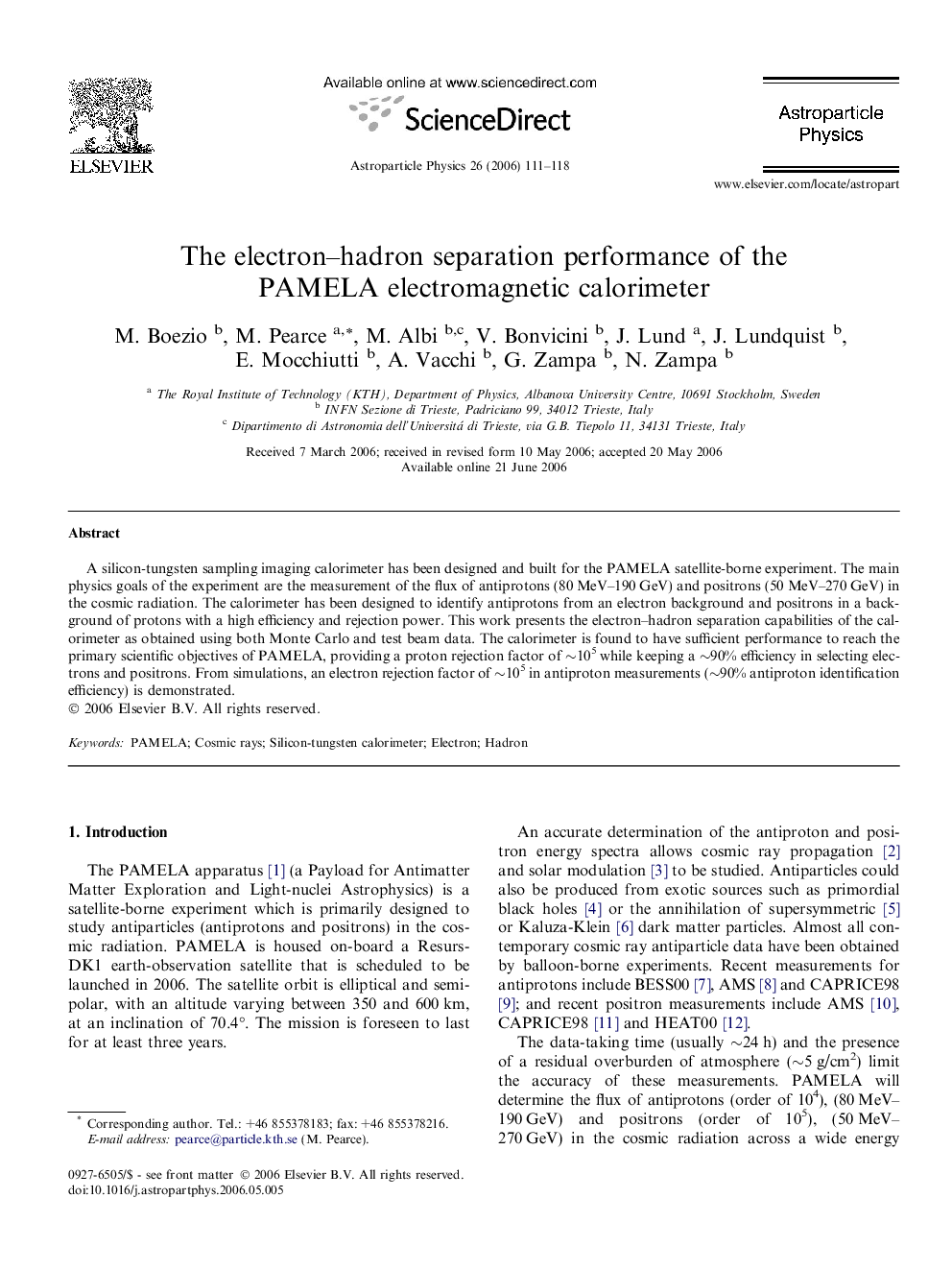| Article ID | Journal | Published Year | Pages | File Type |
|---|---|---|---|---|
| 1771621 | Astroparticle Physics | 2006 | 8 Pages |
A silicon-tungsten sampling imaging calorimeter has been designed and built for the PAMELA satellite-borne experiment. The main physics goals of the experiment are the measurement of the flux of antiprotons (80 MeV–190 GeV) and positrons (50 MeV–270 GeV) in the cosmic radiation. The calorimeter has been designed to identify antiprotons from an electron background and positrons in a background of protons with a high efficiency and rejection power. This work presents the electron–hadron separation capabilities of the calorimeter as obtained using both Monte Carlo and test beam data. The calorimeter is found to have sufficient performance to reach the primary scientific objectives of PAMELA, providing a proton rejection factor of ∼105 while keeping a ∼90% efficiency in selecting electrons and positrons. From simulations, an electron rejection factor of ∼105 in antiproton measurements (∼90% antiproton identification efficiency) is demonstrated.
